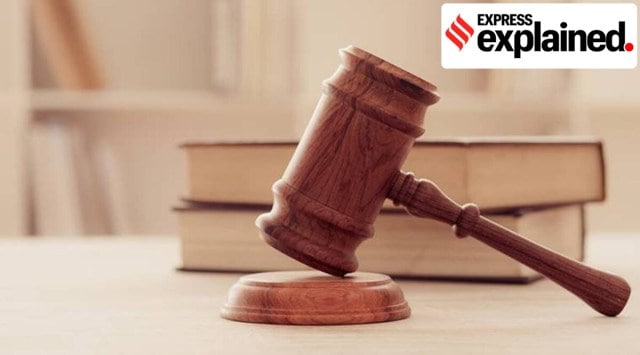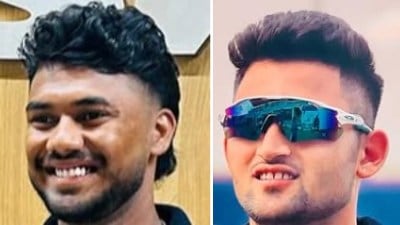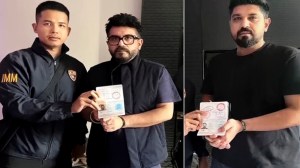Court says journalists not exempt from disclosing sources: What is the law on this?
While the Supreme Court broadly recognises the freedom of the press, including the right of journalists to ensure protection of their sources, various courts have ruled differently on this issue.
 The CBI had sought to close its investigation on how certain news channels and a newspaper had aired and published reports on a disproportionate assets case against late Samajwadi Party leader Mulayam Singh Yadav and his family. (Representational)
The CBI had sought to close its investigation on how certain news channels and a newspaper had aired and published reports on a disproportionate assets case against late Samajwadi Party leader Mulayam Singh Yadav and his family. (Representational) While rejecting a closure report filed by the Central Bureau of Investigation, a Delhi court on January 19 said there is “no statutory exemption in India to journalists from disclosing their sources to investigating agencies”.
What is the law on protection of journalistic sources in India?
What did the court say?
The CBI had sought to close its investigation on how certain news channels and a newspaper had aired and published reports related to a disproportionate assets case against late Samajwadi Party leader Mulayam Singh Yadav and his family members on February 9, 2009, a day prior to the scheduled date of hearing in the Supreme Court.
The CBI had argued that the “documents used by the news channel were forged” but it could not be established who forged the documents since the “users of the forged documents did not disclose their source, therefore there is no sufficient material/evidence to prove the criminal conspiracy”.
However, Chief Metropolitan Magistrate Anjani Mahajan of the Rouse Avenue Court rejected the closure report and directed the CBI to investigate further “on the modus operandi adopted by the culprits for gaining access to/obtaining the official documents including probing involvement of any insider in the acts alleged and preparing the alleged forged 17 pages review note.”
What is the legal protection for disclosure of journalistic sources?
In India, there is no specific legislation that protects journalists from being asked to disclose their sources. Article 19 of the Constitution guarantees the right to freedom of speech and expression to all citizens.
Investigative agencies can issue notice to anyone, including journalists, to provide information. Like any citizen, a journalist can be compelled to give evidence in Court. If she does not comply, the journalist can face charges of Contempt of Court.
What have courts said on this issue?
While the Supreme Court broadly recognises the freedom of the press, including the right of journalists to ensure protection of their sources, various courts have ruled differently on this issue.
While constituting a committee to investigate the Pegasus spyware, the Supreme Court in October 2021 said that one of the fundamental conditions for the media to exercise its right to freedom of speech and expression under Article 19 is the protection of ‘journalistic sources.’
“Having regard to the importance of protection of journalistic sources for press freedom in a democratic society and the potential chilling effect that snooping techniques may have, this Court’s task in the present matter, where certain grave allegations of infringement of the rights of the citizens of the country have been raised, assumes great significance,” the Court had said.
“Protection of journalistic sources is one of the basic conditions for the freedom of the press. Without such protection, sources may be deterred from assisting the press in informing the public on matters of public interest,” the SC added.
In 2019, the Supreme Court in a review petition in the Rafale case overruled the Centre’s objections on the petitioner’s claims since they relied on purportedly “stolen” confidential documents. The Centre had asked the chairman of The Hindu Publishing Group, who wrote the reports, to disclose his sources. N Ram told the Court that the publication was “perfectly justified (and) in public interest”.
“In fact, the publication of the said documents in ‘The Hindu’ newspaper reminds the Court of the consistent views of this Court upholding the freedom of the press in a long line of decisions commencing from Romesh Thappar vs. State of Madras and Brij Bhushan vs. The State of Delhi,” the Supreme Court had said.
However, the absence of a specific law, it is often the discretion of a Court. Courts have in “public interest asked journalists to disclose their sources.
Under the Press Council of India (PCI) Act, of 1978, the Press Council has powers of a civil court to deal with complaints when a newspaper has “offended against the standards of journalistic ethics or public taste or that an editor or working journalist has committed any professional misconduct.” However, the Council cannot force a newspaper, news agency, journalist, or editor to reveal their sources during the proceedings.
Recommendations for a change in law
The Law Commission of India in its 93rd Report in 1983 recommended recognising journalistic privilege by amending the Indian Evidence Act. The short 38-page report suggested insertion of a new provision which would read: “No court shall require a person to disclose the sources of information contained in a publication for which he is responsible, where such information has been obtained by him on the express agreement or implied understanding that the source will be kept confidential”.
In its 185th report on the amendments to the Evidence Act, the Law Commission again suggested this amendment.
Position in other countries
United Kingdom: The Contempt of Courts Act 1981 creates a presumption in favour of journalists who want to protect the identity of their sources. However, that right is subject to certain conditions in the “interest of justice”. The European Court of Human Rights in a landmark 1996 ruling held that an attempt to force a journalist to reveal his source for a news story violated his freedom of speech and expression guaranteed under the European Convention on Human Rights.
United States: Although the First Amendment guaranteeing free speech in the United States specifically mentions the press, the Supreme Court has held that journalists do not have the right to refuse to testify in a federal grand jury proceeding and disclose sources. This was in a 1972 ruling Branzburg v. Hayes. Several journalists have been imprisoned for refusing to disclose their sources.
However, several states in the US have “shield laws” that protect the rights of journalists to varying degrees.
Sweden: The Freedom of the Press Act in Sweden is a broad protection of rights of journalists and even extends to state and municipal employees who might share information with journalists freely. In fact, a journalist who reveals his or her source without consent may be prosecuted at the behest of the source.
In France and Germany too, journalists can refuse to disclose sources in an investigation.
- 01
- 02
- 03
- 04
- 05





































